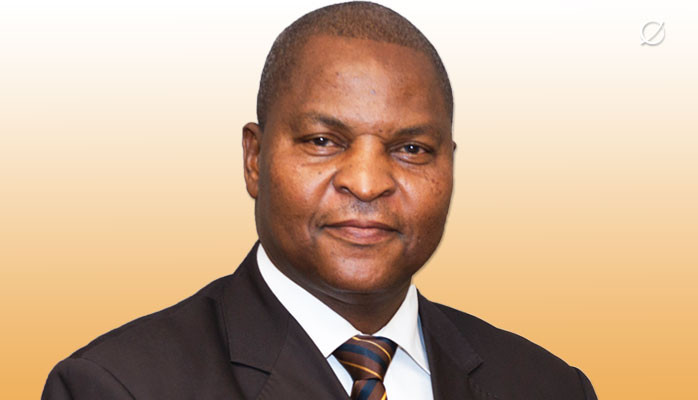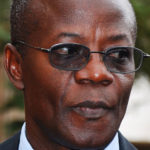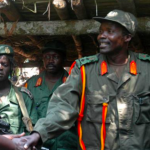Former prime minister Faustin Archange Touadera took a commanding lead in the Central African Republic’s presidential race on Sunday, garnering more than 23 percent of the vote with a quarter of the ballots counted, electoral officials said.
Touadera, a 58-year-old former maths professor who was prime minister under longtime leader Francois Bozize from 2008 to 2013, was considered an outsider in the field of 30 candidates vying in an election seeking to turn the page on years of unrest.
Running as an independent, he has scored more than 120,000 votes, while his closest rival for the top job, Anicet Georges Dologuele, also a former prime minister, has scored just over 68,500 votes, the elections authority’s rapporteur Julius Ngouade Baba said.
The results confirm early indications of Touadera’s lead in the closely watched vote, which took place last Wednesday after repeated delays. A likely second round is set for January 31.
Desire Kolingba, son of a former president, was in third place with under 40,000 votes.
Fourth-placed Jean-Serge Bokassa, the 43-year-old son of the self-proclaimed emperor Jean-Bedel Bokassa, who ruled CAR from 1966 to 1979, had nearly 34,000.
Ex-premier Martin Ziguele, who had been considered a frontrunner and the favourite of former colonial power France, was trailing in fifth place with under 28,000 votes.
One of the world’s poorest countries, with a history of coups and rebellions, Central African Republic was plunged into fierce sectarian violence in 2013 after Bozize was ousted by a mainly Muslim rebel alliance, bringing Michel Djotodia to power — the country’s first Muslim president.
Thousands of people were killed and around one in 10 fled their homes in attacks by rogue rebels on remote villages and brutal reprisals by Christian vigilante groups against Muslim communities.
UN and French peacekeepers helped restore a degree of calm in January 2014, when Djotodia quit under international pressure and a transitional government took over, but large parts of the country remain lawless.
Nearly two million people in the country of around five million were eligible to vote in the elections, which also saw more than 1,800 candidates standing for a place in the 105-seat National Assembly.
Despite security concerns after a deadly attack on a Muslim district in Bangui during a mid-December constitutional referendum, the elections went off without major incident after initial delays caused by logistical glitches.
The head of the UN peacekeeping mission MINUSCA, Parfait Onanga-Anyanga, hailed the polls as a success.
The country’s three last presidents were barred from standing again: former Bangui mayor Catherine Samba-Panza, who has overseen a political transition, as well as Bozize and Djotodia, who are both in exile and under UN and US sanctions linked to the violence.








